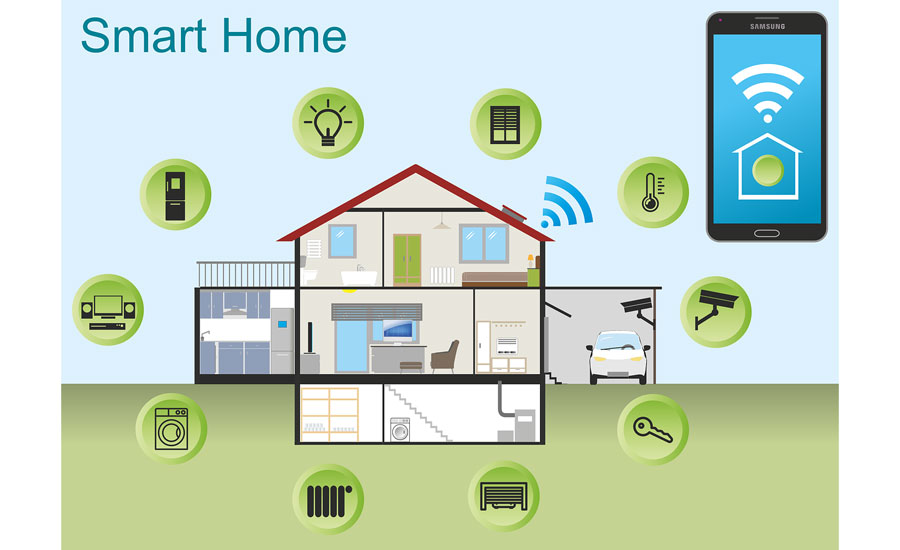Exploring The Environmental Advantages Of Heat Pumps - A Lasting Heating Remedy
Exploring The Environmental Advantages Of Heat Pumps - A Lasting Heating Remedy
Blog Article
Write-Up Writer-Hinrichsen Smed
In an era where sustainability and energy performance are paramount, numerous services look for green home heating services. One such option is the heatpump.
A heatpump extracts the warm in its surroundings and pumps it into your home, causing among one of the most efficient environmentally friendly central furnace around. This procedure also produces absolutely no greenhouse gas exhausts, making it a highly sustainable modern technology.
Energy Efficiency
Heatpump are really power effective and call for little upkeep. They make use of much less power than other heating systems and are by far the most eco-friendly. They work well with rooftop solar and can commonly pay for themselves in utility cost savings alone.
They can also offer cooling, which is excellent for garage workshops, attic room hangouts and reward spaces, and home additions without expanding the existing ductwork. best heat pump brands nz can also be made use of for retrofits in existing homes with hydronic (water-based) circulation systems such as reduced temperature radiators or glowing floors.
Try to find versions with SEER and HSPF ratings that meet or exceed Canada's minimum criteria, in addition to the standards in your region. Higher ratings imply greater effectiveness, which saves you cash in the future and lowers your carbon footprint. You could also get refunds and rewards! The best systems are those with a ground warmth exchanger for included efficiency. These units can soak up thermal energy from the ground throughout the winter season and essence it in the summer season.
Lowered Greenhouse Gas Emissions
Heatpump run on electrical power and essentially transfer warm from the air, also when it's chilly exterior. They have the ability to remove the cost-free heat entraped in air bits and relocate them indoors, lowering humidity while doing so.
Contrasted to gas heaters, contemporary heat pumps make use of less than one kilowatt of power per kilowatt of home heating power they create. This makes them the most energy effective heating choice available with a COP (Coefficient of Efficiency) of four or more. By lowering the requirement for nonrenewable fuel sources, heat pumps help reduce greenhouse gas discharges and cut various other significant air contaminants.
Building decarbonization is a worldwide important, and the a/c sector is a vital vehicle driver of that procedure. Whether it's investor making internet zero commitments, policy makers establishing discharges limits, or tenants requiring greener areas, electric heat pumps are being recognized as a necessary solution. They are a cost-effective way to lower carbon emissions by removing the requirement for fossil fuels in buildings.
Versatility
Heat pumps can be utilized in many sorts of homes and buildings-- with or without air ducts. They deal with hot-water radiators, air-conditioning and programmable thermostats. They can change heaters or be installed in new houses. They can run on photovoltaic panels, geothermal systems and even area home heating resources like wastewater.
They're great at providing even more warm per energy unit. As an example, an air-source heat pump produces approximately 3 or more home heating systems from each electrical power system it takes in.
Getting one of the most from your heat pump will certainly depend on your environment area and high quality of insulation. Search for versions with power celebrity ratings and contrast their SEER or HSPF specifications. In heat pumps in new zealand , focus on SEER; in colder areas, think about a system with a higher HSPF rating. Furthermore, invest in air sealing and insulation to reduce the load on your heatpump. That will improve energy effectiveness and aid you reach your Web No objectives faster.
Biomass Boilers
Biomass boilers make use of timber pellets, chips or logs to produce warmth and warm water. They are an excellent choice for off-grid properties or those that wish to leave the gas grid.
As a standalone heating system, biomass can provide adequate power to maintain your home cozy all year round without the typical warm drop off of various other eco-friendly technologies. They can additionally be used in conjunction with solar panels to maximise financial savings and gain from RHI settlements.
A drawback of these systems is the upfront cost and routine gas shipments. Usually, pellets will need to be blown right into a fuel store making use of a vacuum cleaner system or they can be by hand fed right into the central heating boiler through a receptacle. Logs are generally self-sourced from neighboring timberland or gotten in bulk. Along with this, they require manual loading and might require cleansing regularly.